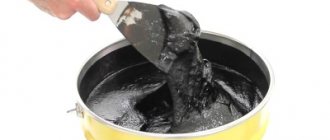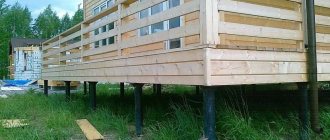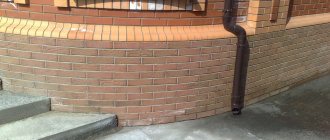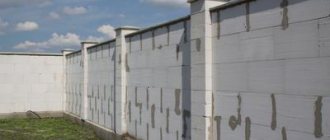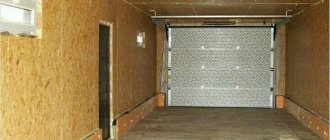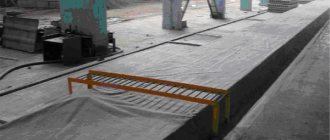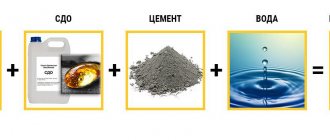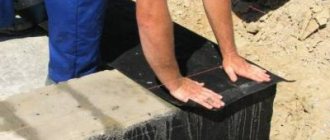When constructing a building, it is necessary to carefully consider the waterproofing of the foundation and plinth. The service life of the object depends on the quality of the work performed. The performed operation will protect the base of the object from the effects of groundwater. There are several methods of protection:
- installation of a drainage system;
- use of insulation.
A special material is often used - TechnoNIKOL foundation waterproofing. It is in demand due to its good performance characteristics.
Types of foundation waterproofing work
In accordance with the purpose of the construction project, the following is produced:
- Anti-filtration insulation for the construction of complex structures and large loads on the base. And also if the soil of the construction site has excess moisture. The work being carried out is a complicated process that requires special preparation.
- Anti-corrosion insulation, which requires less effort, is easier to perform. It is divided into horizontal (protects against capillary drawing in of water) and vertical (lateral protection) waterproofing.
There are several finishing methods:
- Plastering - done with a solution of cement and mineral components. The thickness of the protective layer is no more than 21 millimeters.
- Pasting - made using waterproof material. The thickness is no more than 5 millimeters.
- Coating - performed using a waterproof coating. The working layer is no more than 3 millimeters.
Installation of TechnoNIKOL floor waterproofing under tiles (without protective screed)
Horizontal mounting
1. You can begin laying the material only after the primer composition has completely dried on the base and on the material sheets prepared for installation. For ease of installation, prepared waterproofing strips can be rolled into rolls immediately before starting work.
2. Installation begins from the far corner of the room. The roll is gradually rolled out with the adhesive side over the surface, removing the adhesive film as it goes. The already glued waterproofing needs to be additionally rolled with a roller, this will help to avoid possible bubbles or waves.
3. During installation, make sure that in places of transverse and longitudinal overlaps, the lower sheet of material must be treated with a primer.
4. The discrepancy between the end overlaps of adjacent rolls must be at least 50 cm.
Installation on a vertical surface.
1. Carefully removing the protective film, lay the material on the wall, smooth it, press it and roll it with a stitching roller. Make sure that the material adheres well to the surface.
2. Remove the protective film of the part of the element that is on the floor and glue it in the same way. .
3. To reinforce internal and external corners, use triangular patterns made from self-adhesive waterproofing. Pre-treat the corners with a primer, after complete drying, place the waterproofing patterns on the corners and carefully roll them to the base.
Product range
produces several types of products, differing in structure and method of application:
- Pasted waterproofing is available in roll form. The basis is a polymer with a self-adhesive coating. The material is due to its low cost. Used for finishing the base from the outside. And also for gluing floors in the basement of a building.
- Coating waterproofing is made on the basis of mastics with the addition of various components. The working solution is used hot or cold.
TechnoNIKOL products with high performance indicators can be purchased at reasonable prices.
The choice of building material is determined by operational requirements and practicality.
Areas of application
TechnoNIKOL products for foundations are used to protect the zero cycle of a construction project from the destructive effects of groundwater. All products comply with regulatory requirements and GOSTs. Technical indicators characterize the quality of protective insulation:
- waterproof;
- heat resistance;
- water absorption;
- resistance to mechanical damage.
The products are used in several directions:
- Waterproofing in rolls is a reliable protection for the foundation and plinth of a building.
- Bitumen, mastic (coating material) for preparatory work. Used to cover monolithic structures that are located underground.
- The membrane is used for installation of drainage systems.
Roll insulation group
The material is divided into self-adhesive and built-up waterproofing for foundations. offers construction products:
- Alpha - the base is aluminum foil and polyester. The polymer film forms a reliable coating. Prevents the ingress of water and the passage of radioactive and explosive gases.
- The barrier is made with a self-adhesive layer. Used for work outside and inside buildings.
- Barrier-Light – the top layer is made of non-woven polypropylene. To work with the material, the air temperature must be at least +5 degrees.
- Technoelastmost is a weld-on insulation group that does not change under heavy load. Used for horizontal protection of foundations.
- EPP – laid by horizontal and vertical fusion. Withstands loads up to 0.2 MPa.
TechnoNIKOL foundation waterproofing is superior in performance indicators to roofing felt. A wide range of products allows you to choose the required material.
Coating insulation group
TechnoNIKOL offers products for foundation coating operations. The working composition differs in the temperature at which the process is performed.
The hot application mastic is heated to a temperature of 180 degrees. The composition creates a protective layer and reliably fills cracks in the base. Penetrates deeply into the surface being treated.
Cold application mastic includes several components. When mixing the working solution, an activator is added. For better adhesion, the surface of the foundation is coated with a primer.
TechnoNIKOL No. 21 and No. 24 (bitumen and bitumen-polymer mastics) allows you to carry out work at temperatures from -20 to +40 degrees. The material is applied using a roller, brush or pouring method with leveling. After drying, a protective film against water is formed. The solution is completely ready for use and does not form joints. The consumption of TechnoNIKOL No. 24 is 1 kilogram per square meter.
Using coating waterproofing, a reliable protective layer from moisture is obtained. The coating has the same performance over the entire base area.
Price per roll
Depending on the cost, waterproofing coatings from this company are divided into five main price categories:
- premium,
- business,
- standard,
- economy,
- subeconomy
Materials of these quality classes may differ significantly in price, characteristics, composition and service life.
We suggest considering the most popular products from each price category:
- Premium This line includes 11 items, most of which are intended for waterproofing roofing structures. To treat foundations, Technoelast Thermo roll coating is often used. This is a multifunctional weldable material with an estimated service life of 25-30 years. The average cost per 1 square meter is from 80 to 120 rubles.
Business. Waterproofing from the Ecoflex line is in particular demand.
The average service life of such products is 15-25 years. A distinctive feature is increased heat resistance - the material can withstand short-term heating up to +130 °C. The average cost is about 80-90 rubles per square meter.- Standard. This is the middle price segment, in which the Bipol line of rolled materials occupies a special position. A fiberglass or polyester layer is used as a base, onto which binder bitumen and shale coating are applied. Products in this series are sold in the price range of 65-90 rubles/m2. Service life is about 15 years.
- Economy The budget segment includes Bikrost roll waterproofing, designed for 10 years of operation. Such material will cost almost 2 times less than products of the “Standard” and “Business” classes. The average cost per square meter is 45 rubles.
- Sub-economist. The cheapest Technonikol materials for waterproofing foundations and underground structures are presented in the Stekloizol line. The coating has a fiberglass base, covered on both sides with a binder bitumen layer. The price starts at 40 rubles/m2. The average service life is 5 years.
Everything you need to know about foundation waterproofing can be found in this section.
Membrane insulation coating
If the groundwater level is high, a drainage structure is installed on the construction site. TechnoNIKOL produces a special membrane PLANTER. The basis of the material is a high-density polymer. One side of the membrane has rounded spikes.
Waterproofing is installed on the side surface of the base. The foundation is first primed with a special compound. Then a layer of waterproofing material (roll or mastic) is applied. And only then is the membrane installed, with rounded spikes facing outwards.
When the groundwater level rises, the liquid flows over the membrane coating into the pipe system.
Membrane waterproofing can withstand temperatures down to -50 degrees, the strength is 455 Newton. The membrane provides air ventilation.
Adhesive compositions
Pasted waterproofing of the foundation, as well as the installation of insulation of other areas, involves the treatment of horizontal, vertical or inclined surfaces with rolled materials by shrinking them onto special mastics or adhesive bases.
Adhesives are selected taking into account the structural composition of the adhesive membrane. Brizol, glassine and roofing felt interact with bitumen mastics, roofing felt and roofing felt are placed on tar compounds, and fiberglass, PVC and plastic flexible materials are attached to special adhesives and epoxy resins.
Plastic film insulation is mounted on synthetic glue and resin. To treat horizontal surfaces, perchlorovinyl glue is used; for vertical walls of rooms and basements, a paste based on synthetic rubber and bentonite clay is used. Bitumen compositions from which mastics are prepared are selected taking into account the temperature regime.
To prevent waterproofing material from sliding off basement walls and other vertical surfaces, the softening temperature of the bitumen base should be 25°C higher than the air temperature.
Advantages and disadvantages
All products have advantages and disadvantages. To perform various construction operations, a certain material is selected:
- To waterproof a building with a complex structure, a bitumen mixture is selected.
- Cold laid insulation is recommended for use in basements.
- Roll material allows for quick installation. Ideal for large areas of uncomplicated structures.
- Mastic must be selected for each construction operation.
Thanks to waterproofing, you can increase the usable area of the house. The basement can be used as a living space, and not for storing unnecessary things.
How to choose the right material
To choose the right waterproofing material, you need to understand several basic points:
- The bitumen mixture is convenient to use for treating surfaces with complex geometric shapes.
- Roll waterproofing can quickly and easily cover large areas of the base.
- Cold insulation is convenient to use inside basements and places where it is not possible to use electricity.
- Each type of TechnoNIKOL mastic is designed to solve a specific range of problems.
Thus, taking these points into account and having an idea of the work to be done and the base that needs to be protected, choosing the appropriate material will not be difficult.
Features of waterproofing
To perform the work correctly, the following aspects must be taken into account:
- type of soil;
- depth of groundwater:
- swelling of the soil after frost;
- the load inherent in the project on the foundation.
Based on the analysis, a special installation technology is provided:
- When groundwater passes at a level of 1 meter from the lowest point of the foundation, coating protection is carried out with a combination of horizontal placement of TechnoNIKOL foundation roll waterproofing.
- If groundwater passes higher and does not reach the basement, the roll is installed in two layers and coated with mastic. Vertical protection is performed with adhesive material.
- When groundwater is located high, waterproofing is carried out inside and outside the building.
- The metal parts used in the work are treated with an anti-corrosion agent.
- Wooden structures are coated with an antiseptic composition.
TechnoNIKOL is one of the leaders in the building materials market
The products of this company are not only known, but are also in stable demand in more than 40 countries, including European ones. The ability to compete at such a high level speaks not only of the compliance of TechnoNIKOL building materials with regulated standards, but also of an affordable price, which is also important for the end consumer. Today, the company's products are not limited to waterproofing products. This brand is represented in the markets of many countries by the following groups of materials for construction and related work:
- natural heat insulators (mineral wool and its varieties);
- polymer insulation (expanded polystyrene);
- roofing materials (bitumen shingles);
- various polymer mixtures for treating building surfaces (primers, antifungal impregnations, anti-corrosion liquids, etc.).
However, the general production line remains waterproofing products. Next, we will consider those that are used for waterproofing the foundation.
Additional insulation
The heat loss of a house is 10 percent if the base is not insulated. The structure is subject to harsh environmental influences. TechnoNIKOL foundation insulation has:
- resistance to mechanical stress;
- minimal water absorption;
- frost resistance;
- low vapor absorption rate.
Insulation made from extruded polystyrene foam and polyurethane foam has these properties and is suitable for installation outside the house.
Polyurethane foam fits tightly to the surface of the base, is highly resistant to aggressive environments, and does not form joints. There are also no “cold bridges”.
The materials differ not only in performance characteristics, but also in prices. Insulation made from extruded polystyrene foam is much more expensive.
Hot applied mastic
For ease of storage and transportation, materials of this type are packaged in special paper bags with a silicone interior, and packaged in 30 kg packs.
TechnoNIKOL No. 41
Hot applied mastic TechnoNIKOL No. 41 has slightly different properties compared to cold types of material.
For example, the adhesion strength of a material to a metal surface increases in proportion to the decrease in ambient temperature and at -25 degrees Celsius reaches a value of 0.1 MPa, which even exceeds the requirements of GOST 26589-94.
Of course, applying TechnoNIKOL No. 41 material is a little more complicated than cold mastics, but it is better suited for insulating metal pile-screw foundations.
Carrying out waterproofing work
Before performing construction operations with waterproofing material, it is necessary to prepare the surface. The process consists of performing the following points:
- A visual inspection of the surface is carried out. The base of an old building may have cracks and chips.
- Old waterproofing or paint is removed.
- Surface defects are repaired. To improve adhesion, the foundation is coated with a primer composition.
- Humidity control is carried out in the premises of the facility. Measurements are made with a moisture meter.
It is recommended to carry out work in dry weather. If there is a need to carry out a construction operation in winter, then you need to choose a certain material. Pay attention to the temperature regime.
Waterproofing is an important part of the work carried out during the construction of a facility. The process will help protect the building from the effects of groundwater and increase its service life.
Consumer Reviews
I'm building a house. On the advice of a builder friend, I decided to use TechnoNikol bitumen primer No. 1 to waterproof the basement. According to a friend, this composition is easy to work with and the waterproofing material adheres well to a rough surface. I tried it and was pleased. This primer fills any cavity and dries quickly. I recommend!
Dmitry Shishkov. Volgograd
If you need to reliably glue waterproofing to a cement-sand screed or porous slab, there is nothing better than the TechnoNikol primer. I bought it and can use it right away, no need to dilute, add, mix, etc. It’s convenient to glue both roll and non-roll waterproofing. The primer is characterized by a fairly deep penetrating ability to many materials. I highly recommend trying it.
Alexey Solovyov. Tomsk
I spent a long time choosing a material for waterproofing the basement at the dacha. I settled on TechnoNikol mastic No. 24. However, I did not take into account that the slabs were old and porous and the composition began to quickly absorb into the walls. I had to scour the Internet and it turned out that I should have primed the walls first. I bought TechnoNikol No. 4, treated it, covered it with mastic, and laid roll waterproofing. I completed all the work myself and was very pleased with the result.
Sergey Artemyev. Saratov
More than 30 enterprises in the CIS and Europe, as well as its own scientific institute, allow the TechnoNikol corporation to occupy one of the leading positions in the development and production of high-quality waterproofing materials for all types of construction and repair work.


